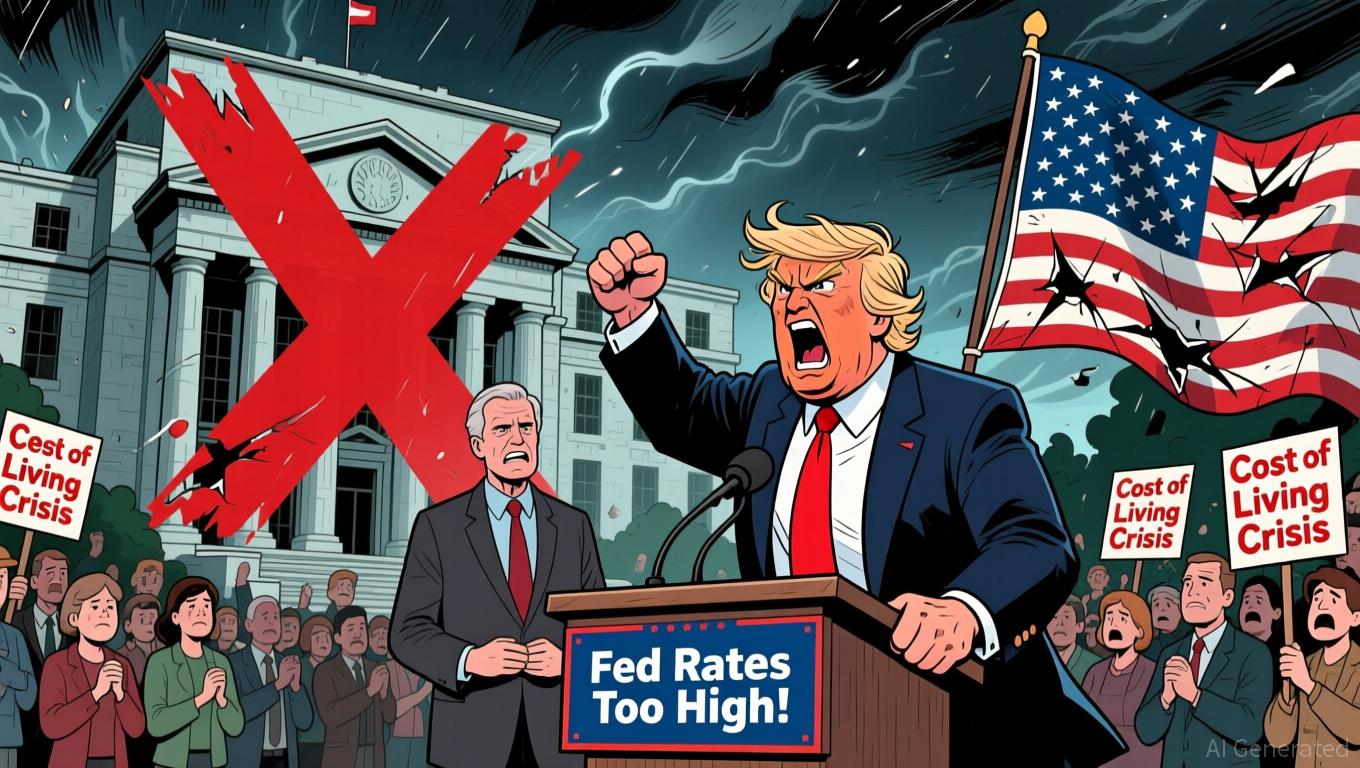Mexico Thwarts U.S. Cartel Raids, Cites 1848 Lesson on National Sovereignty
- Mexico's President Sheinbaum rejects Trump's cartel strike proposal, invoking 1848 sovereignty lesson to defend national autonomy. - Tensions escalate as Mexico removes U.S. contractors' "Restricted Area" signs near Rio Grande, citing border disputes and environmental concerns. - Trump's hardline drug rhetoric clashes with Mexico's sovereignty stance, highlighting strained U.S.-Mexico relations over border security and governance. - Sheinbaum balances U.S. cooperation with sovereignty defense, while Trum
On Tuesday, Mexico's President Claudia Sheinbaum strongly dismissed U.S. President Donald Trump's suggestion to launch military operations against drug cartels within Mexico, firmly upholding the country's sovereignty and cautioning against any outside interference. Her remarks followed Trump's comments made during a press event on Monday, where he suggested the U.S. might "do whatever is necessary" to curb the movement of illegal drugs into the country, including possible cross-border actions. "That will not happen," Sheinbaum declared, reaffirming that her administration would not allow foreign troops to operate inside Mexico.
Trump's remarks, which repeated earlier conversations with Mexican authorities, were quickly met with resistance from Sheinbaum, who stressed that while cooperation on intelligence is acceptable, "we act within our own borders." Later, the U.S. Embassy in Mexico stated that Secretary of State Marco Rubio had assured Mexico that Washington would not act alone, but the episode highlighted growing friction over border security and anti-drug efforts. Trump, who has frequently criticized Mexico's approach to cartel violence, claimed that U.S. monitoring of drug routes is "under intense surveillance" and that forceful action could "save millions of lives."
This exchange took place during another diplomatic dispute involving U.S. contractors who placed "Restricted Area" signs on a beach near the Rio Grande's mouth, which Mexico's navy later removed after finding they were on Mexican land. Sheinbaum mentioned that the International Boundary and Water Commission, the joint agency overseeing the U.S.-Mexico border, was investigating the situation. The Pentagon explained that the signs were intended to mark "National Defense Area III," attributing the confusion to changes in the river's course and landscape. The site is close to SpaceX's Starbase, which has faced scrutiny from Mexican authorities over environmental and cross-border issues.

This confrontation highlights broader geopolitical tensions, including Trump's controversial proposal to rename the Gulf of Mexico as the "Gulf of America" and his administration's strict immigration enforcement, such as recent operations in Charlotte, North Carolina, that led to 81 detentions
Disclaimer: The content of this article solely reflects the author's opinion and does not represent the platform in any capacity. This article is not intended to serve as a reference for making investment decisions.
You may also like
Fed’s Decisions and Their Impact on Solana (SOL): Broader Economic Changes Drive Faster Crypto Uptake and Increased Altcoin Price Fluctuations
- Fed's 2025 rate cuts and QT cessation reintroduce liquidity, boosting Solana (SOL) as a beneficiary of macroeconomic uncertainty. - 21Shares Solana ETF's $100M AUM highlights institutional adoption aligned with Fed-driven easing cycles. - SOL's 14% weekly price drop in late 2025 reflects volatility from geopolitical risks and regulatory uncertainties. - Fed policy ambiguity (e.g., dissenting votes) amplifies Solana's price swings amid conflicting signals on future rate cuts. - Historical data shows Solan
ICP Caffeine AI and the Rising Focus in Crypto: Assessing Expansion Prospects in the Era of AI-Powered Blockchain Advancements
- ICP Caffeine AI, a blockchain-AI platform on ICP, integrates AI into dApps via decentralized infrastructure, reducing inference costs by 20–40%. - Strategic partnerships with Microsoft Azure and Google Cloud boosted institutional adoption, with TVL reaching $237 billion by Q3 2025. - The ICP token surged 385% in a month, driven by institutional confidence in its utility-driven model and regulatory alignment with frameworks like Singapore’s MAS. - Challenges include 22.4% dApp usage decline, scalability b
Trump’s Dispute with the Fed Highlights the Strain Between Political Influence and Central Bank Autonomy
- Trump publicly criticized Fed Chair Powell, threatening to fire him over high rates. - Bessent highlighted tariff cuts on food imports and proposed $2,000 rebate checks to address affordability. - The Fed’s independence faces political pressure as Trump’s economic agenda clashes with monetary policy. - Trump’s rhetoric underscores tensions between presidential authority and central bank autonomy ahead of 2026 midterms.

Bitcoin Leverage Liquidation Emergency: Fluctuations, Systemic Threats, and Routes Toward Stability
- October 2025 crypto liquidation wiped out $19B in perpetual futures, highlighting Bitcoin’s volatility and systemic risks. - Retail panic vs. institutional resilience as ETFs attracted $24B inflows amid retail selloffs. - Regulators focus on digital asset classification amid $73.6B in crypto-collateralized borrowing. - Experts split on recovery, with some forecasting $200K Bitcoin if ETF inflows and Fed cuts continue. - Market recalibration suggests long-term opportunities amid evolving dynamics and risk